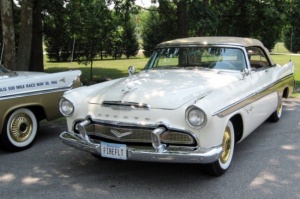Difference between revisions of "Chapter 6"
Sjjohnston (Talk | contribs) (→Page 71) |
(→Page 71: added Louis Phillips email quote) |
||
| Line 33: | Line 33: | ||
Mr Phillips is a widely published poet, playwright, and short story author, who lives in Manhattan, so it's possible Pynchon is acquainted with him and was riffing on Phillips' coinage of "Stewardii" in his poem. | Mr Phillips is a widely published poet, playwright, and short story author, who lives in Manhattan, so it's possible Pynchon is acquainted with him and was riffing on Phillips' coinage of "Stewardii" in his poem. | ||
| + | |||
| + | In an email exchange regarding his use of "Stewardii," Mr. Phillips said: | ||
| + | |||
| + | :About STEWARDII.... The correct plural of STEWARDESS is, I believe, STEWARDESSES. STEWARDII would be used in a humorous manner as I do....but I doubt that it is widely accepted. STEWARDII is mock Latin.... STEWARDUS--I don't believe that exists in Latin. As in JAMES STEWARDUS. I was unaware of Pynchon's use of Stewardii...As I am certain that he has never heard of my writings...But it will not be the first time, writers have independently hit upon the same ideas. | ||
In botany, the suffix "-ii" is often appended to the name of the person who identified or discovered a plant, or the suffix is added to the name of someone the botanist wants to honor or recognize, eg A.N. Steward is the namesake for "Meliosma stewardii." This part of a plant's name is called the "specific epithet." Given that in ''Inherent Vice'' there are [[Plants_of_Inherent_Vice|quite a few characters named after plants]], perhaps there's some connection here? | In botany, the suffix "-ii" is often appended to the name of the person who identified or discovered a plant, or the suffix is added to the name of someone the botanist wants to honor or recognize, eg A.N. Steward is the namesake for "Meliosma stewardii." This part of a plant's name is called the "specific epithet." Given that in ''Inherent Vice'' there are [[Plants_of_Inherent_Vice|quite a few characters named after plants]], perhaps there's some connection here? | ||
Revision as of 17:08, 27 September 2009
- Please keep these annotations SPOILER-FREE by not revealing information from later pages in the novel.
Page numbers refer to editions with 369 pages, where the story begins on page 1. Not sure if there are other editions with variant pagination. Please let us know otherwise.
Contents
Page 68
A lunch date had just happened to cancel
Afternoon, Friday, March 27, 1970, the fourth day of the narrative, and Good Friday.
Nickel
"He showed up at a peculiar skid-row eatery off Temple where wine abusers up from bedrolls in vacent lots back of what remained of the old Nickel." The part of downtown centered around 5th Street is Los Angeles’ Skid Row and has long been referred to by locals and detectives in noir novels as "The Nickel." While downtown Los Angeles has gone through a revitalization in recent years, it has mostly skipped over the Skid Row neighborhood. Listen to Tom Waits' wino lullaby "On The Nickel." "...off the nikel..." page 320. "Plastic Nickel" page 293.
Page 69
Never trust a flatland chick
Could be a reference to Flatland: A Romance of Many Dimensions (1884) [1], a satirical novella by the English schoolmaster Edwin Abbott Abbott. In the chapter "Concerning the Women" (full text available here):
- "If our highly pointed Triangles of the Soldier class are formidable, it may be readily inferred that far more formidable are our Women. For if a Soldier is a wedge, a Woman is a needle; being, so to speak, ALL point, at least at the two extremities. Add to this the power of making herself practically invisible at will, and you will perceive that a Female, in Flatland, is a creature by no means to be trifled with."
- "Obviously then a Woman is not to be irritated as long as she is in a position where she can turn round. When you have them in their apartments — which are constructed with a view to denying them that power — you can say and do what you like; for they are then wholly impotent for mischief, and will not remember a few minutes hence the incident for which they may be at this moment threatening you with death, nor the promises which you may have found it necessary to make in order to pacify their fury."
Page 70
DDA game
Deputy District Attorney (Penny Kimball)
Page 71
stewardii
In the Pynchon-narrated promo video for Inherent Vice, Pynchon sez:
- "stewardesses or, more correctly I guess, stewardii"
In the poem "Johnny Inkslinger Flying Coast to Coastharkens Back to the Sand Dunes of Kitty Hawk" from the collection American Elegies by the poet Louis Phillips:
- Metalinguistic Stewardii / Setting out comfort[2]
Mr Phillips is a widely published poet, playwright, and short story author, who lives in Manhattan, so it's possible Pynchon is acquainted with him and was riffing on Phillips' coinage of "Stewardii" in his poem.
In an email exchange regarding his use of "Stewardii," Mr. Phillips said:
- About STEWARDII.... The correct plural of STEWARDESS is, I believe, STEWARDESSES. STEWARDII would be used in a humorous manner as I do....but I doubt that it is widely accepted. STEWARDII is mock Latin.... STEWARDUS--I don't believe that exists in Latin. As in JAMES STEWARDUS. I was unaware of Pynchon's use of Stewardii...As I am certain that he has never heard of my writings...But it will not be the first time, writers have independently hit upon the same ideas.
In botany, the suffix "-ii" is often appended to the name of the person who identified or discovered a plant, or the suffix is added to the name of someone the botanist wants to honor or recognize, eg A.N. Steward is the namesake for "Meliosma stewardii." This part of a plant's name is called the "specific epithet." Given that in Inherent Vice there are quite a few characters named after plants, perhaps there's some connection here?
It seems more likely to be some kind of joke on the fake, or inaccurate, application of Latin rules to English words.
In Latin, regular nouns ending with "us" are made plural by changing the "us" to "i," e.g. "alumnus" to "alumni" (in the nominative case, but let's not get into declensions here if it's not necessary).
The "ess" at the end of "stewardess," of course, is completely different from the "us" at the end of Latin nouns. Though English is generally gender-free, "ess" is a suffix added to some nouns describing people (typically by occupation) in order to convert the standard form (which, at least theoretically, carries no gender) into a specifically feminine form (such as waitress, stewardess, actress and hostess).
Latin, like many languages but unlike English, has strong gender rules, with almost all nouns being either masculine of feminine. It's either ironic, or perhaps the point of the joke, that Latin nouns ending in "us" (which have plurals ending in "i") are (with rare exceptions) masculine.
Page 72
Wouldn't it Be Nice
Beach Boys, 1966, off the album Pet Sounds.
Page 73
Tommy's
Tommy's is a famous burger chain in the LA area. This place was a food shrine to the American Hamburger and people used to come from miles around to get them. Pynchon moves the location one block east from Rampart and Beverly to Coronado and Beverly.
Krishna, the fry cook: could this be the same Krishna who shows up in Vineland as the sound man for 24 fps?
Page 74
Kahuna Airlines
Airline made famous in Pynchon's Vineland, a non-sked flying out of LAX’s East Imperial Terminal to Hawaii.
Page 75
Ron Karenga
Ron Karenga is an influential African American activist. He invented Kwanzaa. Back in the day in some quarters he was thought to be an agent provocateur in the employ of the FBI, especially after the shoot out at UCLA in January 1969 that left two Black Panthers, Alprentice Bunchy Carter and John Huggens, dead.
Can I be frank for a minute
A bad joke since Doc starts to sing Frank Sinatra's "Fly Me to the Moon."
...the Director...spade penises...
Long time FBI director J. Edgar Hoover, now famous for his paranoia and closeted homosexuality.
Lew Erskine
main character in the TV show, "F.B.I.," which ran 1965-74. IMDB
Page 76
Ralph's
Ubiquitous grocery chain in California. Plays an important role in the Coen brothers' The Big Lebowski, a film to which Inherent Vice is often compared.
Coming out of work later in the day
Afternoon, Friday, March 27, 1970, the fourth day of the narrative.
Page 77
I'm working weeknights at Club Asiatique
Afternoon, Friday, March 27, 1970, the fourth day of the narrative. Doc sees Jade this night at Club Asiatique, still nominally a weeknight.
before he's slipped, as Jim Morrison might put it, "into unconsciousness"...
lyrics from "The Crystal Ship" by The Doors: "Before you slip into unconsciousness / I'd like to have another kiss." The song was on the Doors' first album, The Doors, released in January 1967. Have a listen on YouTube...
as Fats Domino always sez, "Never to be"...
"Blueberry Hill" was written in 1940 and was recorded by Gene Krupa, Glenn Miller, Jimmy Dorsey and Gene Autry, and others. In 1956, Fats Domino (b. 1928) recorded it and it was a #2 hit on the Billboard Top 40. Excerpt:
- The wind in the willow played
- Love's sweet melody
- But all of those vows we made
- Were never to be
Motella gave him a skeptical O-O
Once over.
Hawaiian shirt
One was worn by Tyrone Slothrop in Gravity's Rainbow, part 2.
Page 78
Beach Boys
This must follow some Beach Boys melody. Anyone?
Pynchon's Boards' lyrics bear more than passing similarity to the lyrics of the Beach Boys' 1963 song, "Shut Down."A live version. Note the scarcely competent sax solo by Mike Love, which provides some support for Doc's and Hope Harlingen's opinion, at page 37, of the general level of surf sax playing.
The Beach Boys song was co-written with KHJ DJ Roger Christian (1934-1991), who was likely the source of the car terminology. Christian's other Brian Wilson collaborations included "Don't Worry Baby", "Little Deuce Coupe" and "In the Parkin' Lot" and he co-wrote, for Jan and Dean, "Dead Man's Curve", "The Little Old Lady from Pasadena", "Sidewalk Surfin", "Drag City" and "Honolulu Lulu."
GTOThe Pontiac GTO (Gran Turismo Omologato) is an automobile built by Pontiac in the United States from 1964 to 1974, and is often considered the first true muscle car. Wikipedia...
Page 79
A toda madre!
from Urban Dictionary:
Mexican slang that means something is totally awesome. Often abbreviated, especially in graffiti, as ATM.
"La fiesta estuvo a toda madre." translation: "The party was totally awesome."
Page 80
like Moe going, "Spread out!"
Moe, of the Three Stooges would yell "Spread out!" to the other two, and sometimes some other people, when fighting.
Kai Tak
Kai Tak Airport was the international airport of Hong Kong from 1925 until 1998.
San Pedro, Terminal Island, Vincent Thomas Bridge
All back in L.A.
Page 81

Cheongsam
a body-hugging one-piece Chinese dress for women.
Fan-tan... dollar-a-stone Go
Fan-Tan is a form of gambling long played in China that has similarities to roulette. Wikipedia. The "stones" in "dollar-a-stone Go" most likely refers to the point differential at the end of the game, usually ten or less between evenly matched players.
Page 82
LZ
Vietnam soldier slang for "landing zone."
Page 83
dan ranking
The dan ranking system is a Japanese mark of level is used in martial arts (and also traditional fine arts, including mastery of the board game, Go). Wikipedia entry
wallerin in eye contact
Phonetic spelling of "wallowing" (pleasantly indulging in), as in a sort of hillbilly or rural-Southern accent. This article goes into more detail. An excerpt:
- For those unfamiliar with southern U.S. parlance, the English verb “wallow” is many times pronounced as “waller” in areas of The Southeast, especially rural areas. According to Dictionary.com, the verb “wallow” means “to roll about or lie in water, snow, mud, dust, or the like, as for refreshment." [3]
1956 Fireflite ragtop

The nearly total absence of lighting
Night, Friday, March 27, 1970, the fourth day of the narrative.
Page 85

PX
abbreviation of Post Exchange. A service mark used for a military store on an Army or Naval base that sells goods to military personnel. Apparently, the PX often appeared in the Beetle Bailey comic strip from the 1950s. Wikipedia.
| Chapter 1 pp. 1-18 |
Chapter 2 pp. 19-45 |
Chapter 3 pp. 46-49 |
Chapter 4 pp. 50-54 |
Chapter 5 pp. 55-67 |
| Chapter 6 pp. 68-88 |
Chapter 7 pp. 89-110 |
Chapter 8 pp. 111-123 |
Chapter 9 pp. 124-153 |
Chapter 10 pp. 154-162 |
| Chapter 11 pp. 163-185 |
Chapter 12 pp. 186-206 |
Chapter 13 pp. 207-234 |
Chapter 14 pp. 235-255 |
Chapter 15 pp. 256-274 |
| Chapter 16 pp. 275-295 |
Chapter 17 pp. 296-314 |
Chapter 18 pp. 315-342 |
Chapter 19 pp. 343-350 |
Chapter 20 pp. 351-363 |
| Chapter 21 pp. 364-369 |

